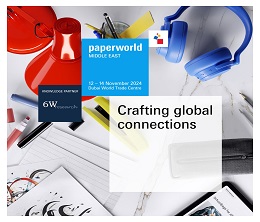Europe Conductive Yarn Market (2024-2030) | Growth, Share, Analysis, Companies, Value, Size, Revenue, Trends, Outlook, Forecast & Industry
Market Forecast by Countries (Germany, United Kingdom, France, Italy, Russia, Spain, Rest of Europe), By Product Type (Metallic Type, Carbon-Based Type, Metal Compound Type), By Application (Anti-Static Fabric, Signal Transmission, Cellphone Protective Cover) And Competitive Landscape
| Product Code: ETC436184 | Publication Date: Nov 2022 | Updated Date: Oct 2024 | Product Type: Market Research Report | |
| Publisher: 6Wresearch | No. of Pages: 200 | No. of Figures: 90 | No. of Tables: 30 | |
Europe Conductive Yarn Market Highlights
| Report Name | Europe Conductive Yarn Market |
| Forecast Period | 2024-2030 |
| Market Size | USD 4.2 billion by 2030 |
| CAGR | 7.1% |
| Growing Sector | Anti-Static |
Topics Covered in the Europe Conductive Yarn Market Report
Europe Conductive Polymers Market report thoroughly covers the market By Countries, By Product Type and By Applications. The market report provides an unbiased and detailed analysis of the ongoing market trends, opportunities/high growth areas, and market drivers which would help the stakeholders to devise and align their market strategies according to the current and future market dynamics.
Europe Conductive Yarn Market Size & Analysis
The Europe Conductive Yarn Market has shown substantial growth in recent years. The market size was valued at approximately USD 2.5 billion, with projections indicating a compound annual growth rate (CAGR) of around 7.1% for the forecast period. This growth trajectory suggests that by 2030, the market could reach an estimated value of USD 4.2 billion. The increase in market size reflects heightened global demand and the expansion of export capacities. Key countries contributing to the market size include Germany, Italy, and the United Kingdom, which collectively account for over 70% of the continent's yarn production.
The Europe Conductive Yarn Market Synopsis
The Europe Conductive Yarn Market has been on an impressive growth trajectory, buoyed by the increasing integration of technology into fabrics and the rising demand for smart textiles across various sectors such as fashion, healthcare, and industrial applications. As industries continuously seek innovative solutions to embed technology into everyday materials, Conductive yarn emerges as a critical component. The market's growth is particularly driven by advancements in yarn conductivity and the incorporation of electronic components, which enhance the functionality of textiles.
With technological progress and sustainable practices taking center stage, the market is attracting significant investments dedicated to the refinement of manufacturing processes and the development of new, high-performance Conductive yarns. Consequently, key players within the European market are intensifying their R&D efforts to maintain a competitive edge and address the evolving needs of the market. This dynamic growth is expected to solidify Europe's position as a leader in the global Conductive yarn landscape.
According to 6Wresearch, the Europe Conductive Yarn Market Size is projected to reach at a CAGR of 7.1% during the forecast period 2024-2030. This anticipated growth can be attributed to the increasing adoption of smart textiles and the integration of advanced electronic features in apparel and industrial applications. As the demand for technologically enhanced fabrics rises, the Conductive yarn market is expected to experience significant investments, particularly in research and development efforts aimed at optimizing yarn conductivity and durability. The focus on developing sustainable and efficient manufacturing processes will likely further propel the market's expansion in the coming years.
Despite the promising growth trajectory, the Europe Conductive Yarn Industry faces several challenges. One of the primary hurdles is the high cost of production associated with integrating conductive materials into yarn. This challenge is compounded by the need for advanced technology and specialized equipment, which can deter smaller manufacturers from entering the market. Additionally, ensuring consistent quality and conductivity across large-scale production remains a technical challenge, often leading to increased rejection rates and wastage.
Europe Conductive Yarn Market Trends
The Europe Conducting Yarn Market is evolving rapidly, with several notable trends shaping its trajectory. One major trend is the increasing demand for smart textiles integrated with advanced functionality, which is driving innovation in the sector. This is particularly evident in wearable technology, where consumers and industries alike are seeking garments that offer enhanced features such as health monitoring and energy harvesting capabilities. Additionally, sustainability is becoming a core focus, with companies investing in eco-friendly production methods and materials to reduce their carbon footprint.
The use of recycled materials in Conductive yarn production is gaining traction, aligning with the broader movement towards sustainable manufacturing. Moreover, the shift towards hybrid fabrics that combine conductivity with traditional textile properties is opening new avenues for product development. Across Europe, collaborative efforts between technology firms and textile manufacturers are emerging, aiming to accelerate the commercialization of cutting-edge Conductive yarn solutions. These trends collectively underscore an expanding market landscape, driven by technological advancements and a commitment to sustainability.
Investment Opportunities in the Europe Conductive Yarn Market
The Europe Conductive Yarn Market presents a multitude of investment opportunities for those looking to capitalize on innovation within the textile industry. One of the most promising areas is the development of high-performance Conductive yarns specifically designed for wearable technology. With the growing popularity of smart textiles in sectors such as healthcare and sports, investing in R&D for advanced yarns that enhance comfort, durability, and functionality is likely to yield substantial returns. Furthermore, the trend towards sustainability offers lucrative investment prospects.
As consumers and industries increasingly demand eco-friendly products, investing in companies focused on sustainable manufacturing processes and the use of recycled materials in Conductive yarns can position investors at the forefront of this green movement. This aligns with Europe's stringent environmental policies, creating a favourable regulatory environment for sustainable growth. Collaborative ventures between established textile manufacturers and innovative tech firms also represent a significant opportunity. By pooling resources and expertise, these collaborations can fast-track the commercialization of next-generation Conductive yarn products. Additionally, supporting start-ups and emerging companies with fresh ideas and cutting-edge technologies can lead to the discovery of breakthrough solutions and potentially lucrative exits through acquisitions or public offerings.
Leading Players in the Europe Conductive Yarn Market
The Europe Conductive Yarn Market features a dynamic mix of established companies and innovative newcomers, each contributing to the advancement and growth of the industry. Among the leading players are Laird Performance Materials, Bekaert, and Guthrie DynaStripe, who have distinguished themselves through continuous investment in research and development, delivering cutting-edge products that meet evolving market demands.
These companies emphasize enhancing the conductivity and flexibility of their yarns, adapting to the needs of various sectors, including automotive, healthcare, and consumer electronics. Additionally, Amann & Söhne GmbH and Statex Produktions- und Vertriebs GmbH are recognized for their commitment to sustainable practices, integrating eco-friendly processes and materials into their manufacturing operations. Collaborations with technology firms and the incorporation of recycled materials are pivotal strategies employed by these players to remain competitive in a market that increasingly values sustainability.
Government Regulations
Government regulations play a significant role in shaping the Europe Conductive Yarn Market Growth, particularly as they pertain to sustainability, innovation, and safety standards. The European Union has implemented stringent environmental policies that mandate reduced carbon emissions and promote eco-friendly manufacturing practices. These regulations ensure that Conductive yarn producers adhere to high environmental standards, thus encouraging investments in sustainable technologies and the use of recycled materials. In addition to environmental guidelines, safety regulations are crucial in governing the production and use of Conductive yarns, especially when employed in sensitive applications like healthcare and consumer electronics.
These rules necessitate rigorous testing and certification processes to guarantee that products meet essential safety criteria, thereby safeguarding consumer well-being. Furthermore, the EU provides various funding initiatives and incentives to support technological advancements within the textile industry. Such programs aim to foster research and innovation, enabling companies to develop next-generation Conductive yarn products that comply with regulatory demands while meeting consumer expectations for quality and performance. By aligning with these regulations, companies not only ensure compliance but also enhance their competitiveness in a market increasingly geared towards sustainable and cutting-edge solutions.
Future Insights of the Europe Conductive Yarn Market
Europe Conductive yarn market share is anticipated to expand in the coming years due to advancements in technology and increasing demand for smart textiles. As industries seek innovative solutions, Conductive yarns are becoming pivotal in the production of wearable electronics and e-textiles. The integration of electronic functionalities into fabrics opens doors for diverse applications, including health monitoring and military gear, driving market expansion.
Furthermore, European regulations promoting sustainable and technologically advanced textile solutions are likely to bolster investment and research in the sector, paving the way for future innovations and expansions. As these trends converge, the Europe Conductive yarn market is poised to become a key player in the global textile industry, fostering economic opportunities and technological advancements.
Market Segmentation Analysis
The report offers a comprehensive study of the subsequent market segments and their leading categories.
Germany to Dominate the Conductive Polymers Market- By Countries
Germany stands out as the dominant force, largely due to its well-established infrastructure and strong focus on technological advancement. As a leader in innovation and industrial prowess, Germany boasts a high concentration of both leading players and forward-thinking startups within the textile sector. This concentration fosters an environment ripe for research and development, propelling Germany to the forefront of the market.
Metallic to Dominate the Market-By Product Type
According to Vasudha, Senior Research Analyst, 6Wresearch the Metallic Type Conductive yarn currently dominates. Its widespread application across various industries, such as automotive, electronics, and healthcare, is largely due to its superior conductive properties and versatility. Metallic Conductive yarns provide excellent electrical conductivity, making them indispensable in applications requiring reliable and consistent performance.
Anti-Static Fabrics to Dominate the Market- By Applications
In the application of Conductive yarn in Anti-Static Fabrics is leading the market. Anti-static fabrics are crucial across diverse industries, including electronics, healthcare, and industrial manufacturing, due to their ability to prevent static build-up and protect sensitive components and devices. This demand is driven by stringent safety standards and the need for operational efficiency, making anti-static applications a major focus for Conductive yarn producers.
Key Attractiveness of the Report
- 10 Years of Market Numbers.
- Historical Data Starting from 2020 to 2023.
- Base Year: 2023
- Forecast Data until 2030.
- Key Performance Indicators Impacting the Market.
- Major Upcoming Developments and Projects.
Key Highlights of the Report
- Europe Conductive Yarn Market Outlook
- Market Size of Europe Conductive Yarn Market, 2020
- Forecast of Europe Conductive Yarn Market, 2030
- Historical Data and Forecast of Europe Conductive Yarn Revenues & Volume for the Period 2020 - 2030
- Europe Conductive Yarn Market Trend Evolution
- Europe Conductive Yarn Market Drivers and Challenges
- Europe Conductive Yarn Price Trends
- Europe Conductive Yarn Porter's Five Forces
- Europe Conductive Yarn Industry Life Cycle
- Historical Data and Forecast of Europe Conductive Yarn Market Revenues & Volume By Product Type for the Period 2020 - 2030
- Historical Data and Forecast of Europe Conductive Yarn Market Revenues & Volume By Metallic Type for the Period 2020 - 2030
- Historical Data and Forecast of Europe Conductive Yarn Market Revenues & Volume By Carbon-Based Type for the Period 2020 - 2030
- Historical Data and Forecast of Europe Conductive Yarn Market Revenues & Volume By Metal Compound Type for the Period 2020 - 2030
- Historical Data and Forecast of Germany Conductive Yarn Market Revenues & Volume By Product Type for the Period 2020 - 2030
- Historical Data and Forecast of Germany Conductive Yarn Market Revenues & Volume By Metallic Type for the Period 2020 - 2030
- Historical Data and Forecast of Germany Conductive Yarn Market Revenues & Volume By Carbon-Based Type for the Period 2020 - 2030
- Historical Data and Forecast of Germany Conductive Yarn Market Revenues & Volume By Metal Compound Type for the Period 2020 - 2030
- Historical Data and Forecast of United Kingdom Conductive Yarn Market Revenues & Volume By Product Type for the Period 2020 - 2030
- Historical Data and Forecast of United Kingdom Conductive Yarn Market Revenues & Volume By Metallic Type for the Period 2020 - 2030
- Historical Data and Forecast of United Kingdom Conductive Yarn Market Revenues & Volume By Carbon-Based Type for the Period 2020 - 2030
- Historical Data and Forecast of United Kingdom Conductive Yarn Market Revenues & Volume By Metal Compound Type for the Period 2020 - 2030
- Historical Data and Forecast of France Conductive Yarn Market Revenues & Volume By Product Type for the Period 2020 - 2030
- Historical Data and Forecast of France Conductive Yarn Market Revenues & Volume By Metallic Type for the Period 2020 - 2030
- Historical Data and Forecast of France Conductive Yarn Market Revenues & Volume By Carbon-Based Type for the Period 2020 - 2030
- Historical Data and Forecast of France Conductive Yarn Market Revenues & Volume By Metal Compound Type for the Period 2020 - 2030
- Historical Data and Forecast of Italy Conductive Yarn Market Revenues & Volume By Product Type for the Period 2020 - 2030
- Historical Data and Forecast of Italy Conductive Yarn Market Revenues & Volume By Metallic Type for the Period 2020 - 2030
- Historical Data and Forecast of Italy Conductive Yarn Market Revenues & Volume By Carbon-Based Type for the Period 2020 - 2030
- Historical Data and Forecast of Italy Conductive Yarn Market Revenues & Volume By Metal Compound Type for the Period 2020 - 2030
- Historical Data and Forecast of Russia Conductive Yarn Market Revenues & Volume By Product Type for the Period 2020 - 2030
- Historical Data and Forecast of Russia Conductive Yarn Market Revenues & Volume By Metallic Type for the Period 2020 - 2030
- Historical Data and Forecast of Russia Conductive Yarn Market Revenues & Volume By Carbon-Based Type for the Period 2020 - 2030
- Historical Data and Forecast of Russia Conductive Yarn Market Revenues & Volume By Metal Compound Type for the Period 2020 - 2030
- Historical Data and Forecast of Spain Conductive Yarn Market Revenues & Volume By Product Type for the Period 2020 - 2030
- Historical Data and Forecast of Spain Conductive Yarn Market Revenues & Volume By Metallic Type for the Period 2020 - 2030
- Historical Data and Forecast of Spain Conductive Yarn Market Revenues & Volume By Carbon-Based Type for the Period 2020 - 2030
- Historical Data and Forecast of Spain Conductive Yarn Market Revenues & Volume By Metal Compound Type for the Period 2020 - 2030
- Historical Data and Forecast of Rest of Europe Conductive Yarn Market Revenues & Volume By Product Type for the Period 2020 - 2030
- Historical Data and Forecast of Rest of Europe Conductive Yarn Market Revenues & Volume By Metallic Type for the Period 2020 - 2030
- Historical Data and Forecast of Rest of Europe Conductive Yarn Market Revenues & Volume By Carbon-Based Type for the Period 2020 - 2030
- Historical Data and Forecast of Rest of Europe Conductive Yarn Market Revenues & Volume By Metal Compound Type for the Period 2020 - 2030
- Historical Data and Forecast of Europe Conductive Yarn Market Revenues & Volume By Application for the Period 2020 - 2030
- Historical Data and Forecast of Europe Conductive Yarn Market Revenues & Volume By Anti-Static Fabric for the Period 2020 - 2030
- Historical Data and Forecast of Europe Conductive Yarn Market Revenues & Volume By Signal Transmission for the Period 2020 - 2030
- Historical Data and Forecast of Europe Conductive Yarn Market Revenues & Volume By Cellphone Protective Cover for the Period 2020 - 2030
- Historical Data and Forecast of Germany Conductive Yarn Market Revenues & Volume By Application for the Period 2020 - 2030
- Historical Data and Forecast of Germany Conductive Yarn Market Revenues & Volume By Anti-Static Fabric for the Period 2020 - 2030
- Historical Data and Forecast of Germany Conductive Yarn Market Revenues & Volume By Signal Transmission for the Period 2020 - 2030
- Historical Data and Forecast of Germany Conductive Yarn Market Revenues & Volume By Cellphone Protective Cover for the Period 2020 - 2030
- Historical Data and Forecast of United Kingdom Conductive Yarn Market Revenues & Volume By Application for the Period 2020 - 2030
- Historical Data and Forecast of United Kingdom Conductive Yarn Market Revenues & Volume By Anti-Static Fabric for the Period 2020 - 2030
- Historical Data and Forecast of United Kingdom Conductive Yarn Market Revenues & Volume By Signal Transmission for the Period 2020 - 2030
- Historical Data and Forecast of United Kingdom Conductive Yarn Market Revenues & Volume By Cellphone Protective Cover for the Period 2020 - 2030
- Historical Data and Forecast of France Conductive Yarn Market Revenues & Volume By Application for the Period 2020 - 2030
- Historical Data and Forecast of France Conductive Yarn Market Revenues & Volume By Anti-Static Fabric for the Period 2020 - 2030
- Historical Data and Forecast of France Conductive Yarn Market Revenues & Volume By Signal Transmission for the Period 2020 - 2030
- Historical Data and Forecast of France Conductive Yarn Market Revenues & Volume By Cellphone Protective Cover for the Period 2020 - 2030
- Historical Data and Forecast of Italy Conductive Yarn Market Revenues & Volume By Application for the Period 2020 - 2030
- Historical Data and Forecast of Italy Conductive Yarn Market Revenues & Volume By Anti-Static Fabric for the Period 2020 - 2030
- Historical Data and Forecast of Italy Conductive Yarn Market Revenues & Volume By Signal Transmission for the Period 2020 - 2030
- Historical Data and Forecast of Italy Conductive Yarn Market Revenues & Volume By Cellphone Protective Cover for the Period 2020 - 2030
- Historical Data and Forecast of Russia Conductive Yarn Market Revenues & Volume By Application for the Period 2020 - 2030
- Historical Data and Forecast of Russia Conductive Yarn Market Revenues & Volume By Anti-Static Fabric for the Period 2020 - 2030
- Historical Data and Forecast of Russia Conductive Yarn Market Revenues & Volume By Signal Transmission for the Period 2020 - 2030
- Historical Data and Forecast of Russia Conductive Yarn Market Revenues & Volume By Cellphone Protective Cover for the Period 2020 - 2030
- Historical Data and Forecast of Spain Conductive Yarn Market Revenues & Volume By Application for the Period 2020 - 2030
- Historical Data and Forecast of Spain Conductive Yarn Market Revenues & Volume By Anti-Static Fabric for the Period 2020 - 2030
- Historical Data and Forecast of Spain Conductive Yarn Market Revenues & Volume By Signal Transmission for the Period 2020 - 2030
- Historical Data and Forecast of Spain Conductive Yarn Market Revenues & Volume By Cellphone Protective Cover for the Period 2020 - 2030
- Historical Data and Forecast of Rest of Europe Conductive Yarn Market Revenues & Volume By Application for the Period 2020 - 2030
- Historical Data and Forecast of Rest of Europe Conductive Yarn Market Revenues & Volume By Anti-Static Fabric for the Period 2020 - 2030
- Historical Data and Forecast of Rest of Europe Conductive Yarn Market Revenues & Volume By Signal Transmission for the Period 2020 - 2030
- Historical Data and Forecast of Rest of Europe Conductive Yarn Market Revenues & Volume By Cellphone Protective Cover for the Period 2020 - 2030
- Europe Conductive Yarn Market - Key Performance Indicators
- Europe Conductive Yarn Market - Import Export Trade Statistics
- Europe Conductive Yarn Market - Opportunity Assessment By Countries
- Europe Conductive Yarn Market - Opportunity Assessment By Product Type
- Europe Conductive Yarn Market - Opportunity Assessment By Application
- Europe Conductive Yarn Market - Top Companies Market Share
- Europe Conductive Yarn Market - Top Companies Profiles
- Europe Conductive Yarn Market - Comparison of Players in Technical and Operating Parameters
- Europe Conductive Yarn Market - Strategic Recommendations
Market Covered
The market report has been segmented and sub segmented into the following categories
By Countries
- Germany
- United Kingdom
- France
- Italy
- Russia
- Spain
- Rest of Europe
By Product Type
- Metallic Type
- Carbon-Based Type
- Metal Compound Type
By Application
- Anti-Static Fabric
- Signal Transmission
- Cell phone Protective Cover
Europe Conductive Yarn Market (2024-2030): FAQs
| 1 Executive Summary |
| 2 Introduction |
| 2.1 Key Highlights of the Report |
| 2.2 Report Description |
| 2.3 Market Scope & Segmentation |
| 2.4 Research Methodology |
| 2.5 Assumptions |
| 3 Europe Conductive Yarn Market Overview |
| 3.1 Europe Regional Macro Economic Indicators |
| 3.2 Europe Conductive Yarn Market Revenues & Volume, 2020 & 2030F |
| 3.3 Europe Conductive Yarn Market - Industry Life Cycle |
| 3.4 Europe Conductive Yarn Market - Porter's Five Forces |
| 3.5 Europe Conductive Yarn Market Revenues & Volume Share, By Countries, 2020 & 2030F |
| 3.6 Europe Conductive Yarn Market Revenues & Volume Share, By Product Type, 2020 & 2030F |
| 3.7 Europe Conductive Yarn Market Revenues & Volume Share, By Application, 2020 & 2030F |
| 4 Europe Conductive Yarn Market Dynamics |
| 4.1 Impact Analysis |
| 4.2 Market Drivers |
| 4.3 Market Restraints |
| 5 Europe Conductive Yarn Market Trends |
| 6 Europe Conductive Yarn Market, 2020 - 2030 |
| 6.1 Europe Conductive Yarn Market, Revenues & Volume, By Product Type, 2020 - 2030 |
| 6.2 Europe Conductive Yarn Market, Revenues & Volume, By Application, 2020 - 2030 |
| 7 Germany Conductive Yarn Market, 2020 - 2030 |
| 7.1 Germany Conductive Yarn Market, Revenues & Volume, By Product Type, 2020 - 2030 |
| 7.2 Germany Conductive Yarn Market, Revenues & Volume, By Application, 2020 - 2030 |
| 8 United Kingdom Conductive Yarn Market, 2020 - 2030 |
| 8.1 United Kingdom Conductive Yarn Market, Revenues & Volume, By Product Type, 2020 - 2030 |
| 8.2 United Kingdom Conductive Yarn Market, Revenues & Volume, By Application, 2020 - 2030 |
| 9 France Conductive Yarn Market, 2020 - 2030 |
| 9.1 France Conductive Yarn Market, Revenues & Volume, By Product Type, 2020 - 2030 |
| 9.2 France Conductive Yarn Market, Revenues & Volume, By Application, 2020 - 2030 |
| 10 Italy Conductive Yarn Market, 2020 - 2030 |
| 10.1 Italy Conductive Yarn Market, Revenues & Volume, By Product Type, 2020 - 2030 |
| 10.2 Italy Conductive Yarn Market, Revenues & Volume, By Application, 2020 - 2030 |
| 11 Russia Conductive Yarn Market, 2020 - 2030 |
| 11.1 Russia Conductive Yarn Market, Revenues & Volume, By Product Type, 2020 - 2030 |
| 11.2 Russia Conductive Yarn Market, Revenues & Volume, By Application, 2020 - 2030 |
| 12 Spain Conductive Yarn Market, 2020 - 2030 |
| 12.1 Spain Conductive Yarn Market, Revenues & Volume, By Product Type, 2020 - 2030 |
| 12.2 Spain Conductive Yarn Market, Revenues & Volume, By Application, 2020 - 2030 |
| 13 Rest of Europe Conductive Yarn Market, 2020 - 2030 |
| 13.1 Rest of Europe Conductive Yarn Market, Revenues & Volume, By Product Type, 2020 - 2030 |
| 13.2 Rest of Europe Conductive Yarn Market, Revenues & Volume, By Application, 2020 - 2030 |
| 14 Europe Conductive Yarn Market Key Performance Indicators |
| 15 Europe Conductive Yarn Market - Opportunity Assessment |
| 15.1 Europe Conductive Yarn Market Opportunity Assessment, By Countries, 2020 & 2030F |
| 15.2 Europe Conductive Yarn Market Opportunity Assessment, By Product Type, 2020 & 2030F |
| 15.3 Europe Conductive Yarn Market Opportunity Assessment, By Application, 2020 & 2030F |
| 16 Europe Conductive Yarn Market - Competitive Landscape |
| 16.1 Europe Conductive Yarn Market Revenue Share, By Companies, 2023 |
| 16.2 Europe Conductive Yarn Market Competitive Benchmarking, By Operating and Technical Parameters |
| 17 Company Profiles |
| 18 Recommendations |
| 19 Disclaimer |
- Single User License$ 4,560
- Department License$ 5,055
- Site License$ 5,595
- Global License$ 6,000
Search
Related Reports
- Czech Republic Crude Sulfate Turpentine Market Outlook | Size, Forecast, Growth, Share, Analysis, Trends, Value, Companies, COVID-19 IMPACT, Revenue & Industry
- Poland Crude Sulfate Turpentine Market Outlook | Revenue, Value, Share, Growth, Forecast, COVID-19 IMPACT, Size, Industry, Analysis, Trends & Companies
- Germany Stainless Steel Commercial Kitchen Appliances Market (2024-2030) | Segmentation, Growth, Outlook, Share, Analysis, Industry, Companies, Value, Size & Revenue, Forecast, Trends
- Bus Market (2024-2030) | Trends, Size, Value, Forecast, Growth, Share, Companies, Analysis, Revenue & Industry
- Canned Food Market (2024-2030) | companies, industry, Size, Share, Revenue, Forecast, Trends, Analysis, Growth, Value, Outlook
- India Video Surveillance Market (2024-2030) | Size, industry, Share, Trends, Revenue, Analysis, Forecast, Growth, Value, Outlook
- India Air Conditioner (AC) Market (2024-2030) | Share, Size, Growth, Industry, Segmentation, Trends, Value, Revenue, Analysis & Outlook
- Poland Printing Market (2024-2030) | Trends, Companies, Share, Industry, Value, Growth, Analysis, Outlook, Forecast, Size & Revenue
- Argentina Data storage devices Market (2024-2030) | Size, Share, Industry, Trends, Growth, Value, Revenue, Analysis & Outlook
- UAE Cyber Security Market (2024-2030) | industry, Size, Share, Revenue, Analysis, Forecast, Growth, Trends & Outlook
Industry Events and Analyst Meet
Our Clients
Whitepaper
- Middle East & Africa Commercial Security Market Click here to view more.
- Middle East & Africa Fire Safety Systems & Equipment Market Click here to view more.
- GCC Drone Market Click here to view more.
- Middle East Lighting Fixture Market Click here to view more.
- GCC Physical & Perimeter Security Market Click here to view more.
6WResearch In News
- India's Printer Market Faces 20.7% Decline in Q4 2023: Epson and HP Lead Amidst Downturn
- India's Camera Market Sees 8.9% Decline in Q4 2023; Canon Leads with 38.4% Share
- Doha a strategic location for EV manufacturing hub: IPA Qatar
- Demand for luxury TVs surging in the GCC, says Samsung
- Empowering Growth: The Thriving Journey of Bangladesh’s Cable Industry
- The future of gaming industry in the Philippines













